Search
Summary
Loading AI-generated summary based on World History Encyclopedia articles ...
Answers are generated by Perplexity AI drawing on articles from World History Encyclopedia. Please remember that artificial intelligence can make mistakes. For more detailed information, please read the source articles
Search Results
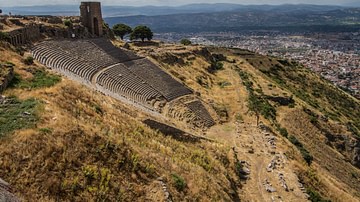
Definition
Pergamon
Pergamon (also Pergamum) was a major intellectual and cultural center in Mysia (northwest Asia Minor, modern-day Turkey) which flourished under the Attalid Dynasty (281-133 BCE) during the Hellenistic Period. It was the capital of the Kingdom...
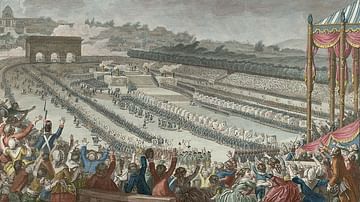
Definition
Festival of the Federation
The Festival of the Federation (Fête de la Fédération) was a celebration that occurred on the Champ de Mars outside Paris on 14 July 1790, the first anniversary of the Storming of the Bastille. With over 300,000 people in attendance, the...
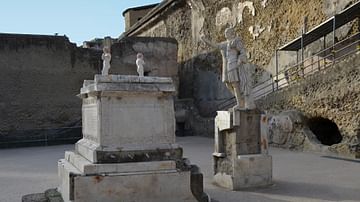
Image
Funerary Altar and Statue of Marcus Nonius Balbus in Herculaneum
Marcus Nonius Balbus was a prominent figure of Herculaneum during the Augustan period (27 BCE - 14 CE). He embellished the town with civic monuments and public facilities. His generosity to Herculaneum is preserved in inscriptions, and at...
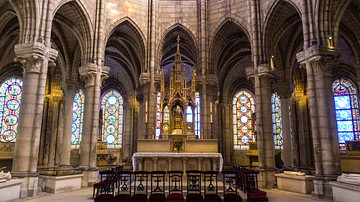
Image
Basilica of Saint-Denis, Main Altar
Extensively renovated by Abbot Suger between 1137 and 1148 CE, the Basilica of Saint-Denis in Paris became the archetype of Gothic cathedrals. Suger made intentional use of light to help spiritually transport the beholder towards the divine...
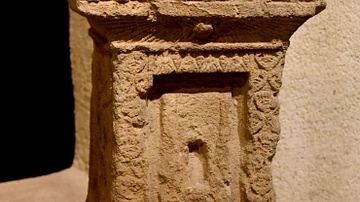
Image
Egyptian-Type Votive Altar from Sidon
This marble votive stele has an Egyptian style (note the row of uraeus cobras at the top). First half of the 5th century BCE. From Sidon, in modern-day Lebanon. (Museum of Archaeology, Istanbul, Turkey).
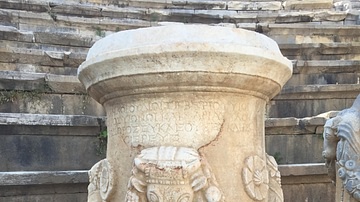
Image
Cylindrical Altar, Metropolis
Three altars dedicated to Ceasar Augustus are found in the theater on the site of the ancient city of Metropolis. Metropolis was a Greco-Roman city situated between two of the great cities of antiquity, Ephesus and Smyrna. The city possibly...
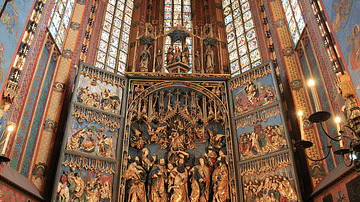
Article
Renaissance Altarpieces
During the Renaissance (1400-1600) just about any artist of worth found themselves commissioned at some point in their careers to produce an altarpiece. Some of the greatest names in European art were so called upon, from Jan van Eyck to...

Video
The Pergamon Altar, c. 200-150 B.C.E.
More free lessons at: http://www.khanacademy.org/video?v=L3SIooVHV8E The Pergamon Altar, c. 200-150 B.C.E., 35.64 x 33.4 meters (Pergamon Museum, Berlin) View this work up close on the Google Art Project: http://www.googleartproject.com/collection/pergamonmuseum-berlin/artwork/pergamon-altar-unknown/536029/...
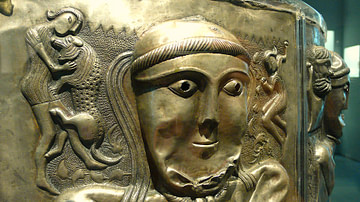
Article
The Ancient Celtic Pantheon
The ancient Celtic pantheon consisted of over 400 gods and goddesses who represented everything from rivers to warfare. With perhaps the exception of Lugh, the Celtic gods were not universally worshipped across Iron Age Europe but were very...
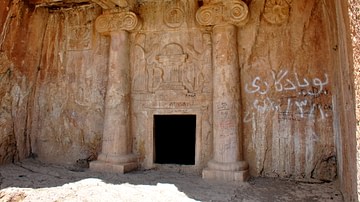
Article
The Rock-Cut Tombs of Qizqapan, Iraqi Kurdistan: Median or Achaemenid?
O Creator of the material world, at what distance from the holy man (should the place for the dead body be)?" Ahura Mazda replied: "Three paces from the holy man". (Vend. 8. 6-7) In September 2009 CE, one of my relatives suggested...